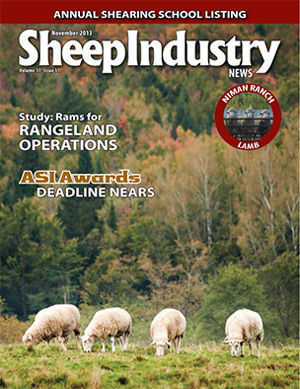Clint Krebs, ASI President
Fall and the college football season always make me think of my college years some 35 years ago, and it amazes me how many times my farm management professor continues to come to mind. I really do not remember very much about the class other than at least once in every lecture he would ask the question, “What is farm management?” He would then go on to provide the answer that farm management is “selective neglect.”
At the time it did not make as much sense as it does to me today. In reality, those of us running farms or ranch operations get up every morning and we have twenty or more things that need to be accomplished; however, only the time to do three or four of them. Therefore, we all choose to neglect some necessary tasks. Farm management is making sure the critical tasks get done before there is a major failure.
In my travels representing the industry I have heard from many people, and realize this same approach of “selective neglect” is used by many producers. I have also heard that as an industry, from coast to coast and from border to border, producers are not dealing with what I consider the most critical component to a successful sheep industry – transitioning ownership to the younger generation. I have been to meeting after meeting where no one in the room was under 60 years of age, I have talked to hundreds of people under the age of 30 with the ability and work ethic who are eager to get involved in raising sheep but cannot find an opportunity to get started. I know the American Sheep Industry Association and the National Livestock Producers Association have put together programs designed to encourage transitioning, yet we are seeing very little progress.
So why are producers choosing to go fix fence, or some other farm chore, over developing a transition plan? I would like to hear your answers. The experts tell us things like people do not want to deal with death, people do not feel like they can be fair to all their children, people do not believe there are solutions to their own business transition, among other reasons. What I am hearing is, yes it is difficult, yes it will be painful, yes you will probably need to get some outside help; but no, you cannot put it off until tomorrow. We developed a transition plan for our operation seven years ago, and it was not easy. It did not come without outside help and with cost, but I can tell you it has made life so much easier because we chose not to neglect this critical component of running our ranch.
As a side note, I can also tell you almost all of the members of a cattle cooperative I belong to forgot at least part of – or maybe all – of their Animal Science 101 college class. After 30-plus years after graduation, some members could not remember the one sure way to tell the difference between a sheep and a goat. Maybe they need to ‘transition’ too.


